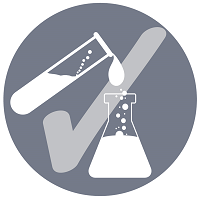Formulation and Delivery
Symposium: Accelerating Drug Development Through Digital Innovation 2
Speed-Up and De-Risk Biologics Developability and Formulation Development in silico
Wednesday, November 12, 2025
9:00 AM - 9:30 AM CT
Location: Stars at Night B2/B3

Andrea Arsiccio, PhD (he/him/his)
Senior Scientist Science and Technology/ Team Lead in silico
Coriolis Pharma Research GmbH
Munich, Bayern, Germany
Speaker(s)
In silico drug product development will play an increasingly important role to deliver life-saving medication to patients as fast as possible. In silico tools promise to save costly time and material by performing calculations and simulations instead of laborious experiments in the lab. Moreover, in silico tools could enable analyses that would not be practicably feasible or too time consuming, which could supplement existing experimental work and thus further de-risk the subsequent drug product development process. In this presentation we will review these promises and provide an unbiased overview of current applications and trends in in silico development of therapeutic drugs. We will showcase the progress achieved in developability assessment of monoclonal antibodies based on scientific literature and recent work achieved in our labs. We will also elaborate on the challenges and limitations of current models, particularly when predictions need to be performed on proteins other than traditional antibodies for which limited prior knowledge is available.
We will additionally describe a novel, cutting-edge in silico pipeline, that combines innovative computational techniques spanning different areas, including structure prediction, bioinformatics, machine learning and molecular dynamics calculations. The pipeline only requires the primary sequence of a therapeutic protein as input, thus eliminating the need for physical material.
The outputs of the in silico pipeline allow a comprehensive characterization of the protein of interest. The computational tools identify potential stability issues, thus minimizing the risk of costly failures in later development phases. The query protein is compared and benchmarked against a vast database of clinical stage or marketed proteins, allowing the identification of outlying properties. The comparison to a manually curated formulation database and the application of novel molecular dynamics simulations further guides the formulation scientist in the selection of excipients and formulation corridors for the molecule of interest. This de-risks the process of formulation development, and complies with the growing industry trend toward quality by design.
The main features of this pipeline will be highlighted by discussing case studies, with the aim of guiding the attendees through real examples of drug product characterization and formulation development. The application areas, limitations and advantages of the different models composing the pipeline will be discussed with reference to the above-mentioned case studies. This will provide the attendees with a solid understanding of how in silico can benefit the process of drug process development, and where improvement is still needed.
Ultimately, we intend to broaden the basic understanding on today’s in silico capabilities in preclinical formulation development as well as to inspire the audience for the exciting challenges that still need to be addressed.
We will additionally describe a novel, cutting-edge in silico pipeline, that combines innovative computational techniques spanning different areas, including structure prediction, bioinformatics, machine learning and molecular dynamics calculations. The pipeline only requires the primary sequence of a therapeutic protein as input, thus eliminating the need for physical material.
The outputs of the in silico pipeline allow a comprehensive characterization of the protein of interest. The computational tools identify potential stability issues, thus minimizing the risk of costly failures in later development phases. The query protein is compared and benchmarked against a vast database of clinical stage or marketed proteins, allowing the identification of outlying properties. The comparison to a manually curated formulation database and the application of novel molecular dynamics simulations further guides the formulation scientist in the selection of excipients and formulation corridors for the molecule of interest. This de-risks the process of formulation development, and complies with the growing industry trend toward quality by design.
The main features of this pipeline will be highlighted by discussing case studies, with the aim of guiding the attendees through real examples of drug product characterization and formulation development. The application areas, limitations and advantages of the different models composing the pipeline will be discussed with reference to the above-mentioned case studies. This will provide the attendees with a solid understanding of how in silico can benefit the process of drug process development, and where improvement is still needed.
Ultimately, we intend to broaden the basic understanding on today’s in silico capabilities in preclinical formulation development as well as to inspire the audience for the exciting challenges that still need to be addressed.
Learning Objectives:
- Upon completion, participants will learn how in silico tools can speed-up and de-risk formulation development and will know which tools have been described so far.
- Upon completion, participants will be able to comprehend the impact and limitations of current in silico tools on preclinical drug product development.
- Upon completion, participants will understand the benefits of combining different in silico tools, and how to apply them for a comprehensive characterization of a therapeutic protein.

